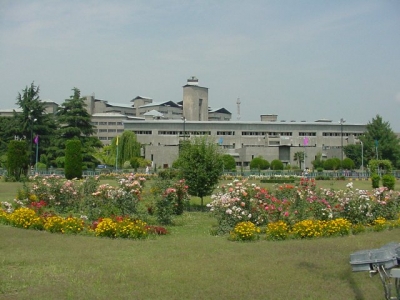Arshid Malik
I have eventually figured out that there is always a brighter side to every story. It all depends on your line of vision. If you are a positivist you will certainly find the innate yet hidden brighter potential to everything and if you are not you can safely blame yourself for not finding what could have made the moment more bearable. It so happens that the very idea of there always being a “brighter side to everything” factually instils hope in our hearts and by all means it is “hope” that drives the entire population on this planet.
Now, my topic is the militant movement in Kashmir which is on a really low note as of now. I won’t wander into ifs and buts of the movement and neither do I intend to comment on the scene politically. My point is that of economic importance in connection with the aesthetics of the entire region. With the upstart of militancy in Kashmir, industry was on a slide downwards. There were very few survivors and those who managed to survive were real fighters and today happen to be the market leaders. The other end of the story is the probable economic investment that could have made it into Kashmir had the militant movement not actuated. People from all corners of India, and I am talking about major players in the corporate industrial sector, would have invested billions in Kashmir as the region is very much suited for industrialization, especially when we talk about the major sectors which include food processing, information technology, allied electronics besides others. Another prospective side to industrialization in Kashmir would have definitely focused on the mineral wealth of Kashmir which by all means has not been fully ascertained but experts opine that Kashmir is mineral rich and a boon area for mineral mining. Gold, quartzite, iron ore, sapphire, diamonds besides some possible fossil remains had been etched around in some government and non-government portfolios in the past. Kashmir would have proverbially developed “overnight” into a hub of commerce and industrialization. We missed that and there is no way we can help it except welcome a better prospective future which focuses entirely on growth and development, in other words “economic reconstruction”.
At present there a limited number of industries in Kashmir that are genuinely on the upscale journey and the rest are smaller units which are barely able to make ends meet besides other “existing on paper and eluding in nature” industries. As of now investments from outside into Kashmir are rare exceptions as the situation has not fully settled down and the truth is that no one is actually sure how things are going to go in the next few upcoming years as the complexity of the political as well as social structures is so very crooked to enable a possible extrapolation.
My point is rather different and holds importance to me as I believe in practical frugality in order to survive the order of nature, for ourselves as people and for nature as nature. I believe that we do not need to get super rich or develop “overnight”. We are a population that inhabits one of the most beautiful places on Earth and we have to save it for future generations. The father of an American friend of mine, who happens to be an adventurist and nature enthusiast, visited Kashmir almost a decade ago. He was around 78 but with the spirit and the zest for life of a 16 year old. He was too fit to fit into my description of fitness and loved travelling. While in Kashmir he made sojourns to the remotest parts of the Valley. When he told me about places he had visited in Kashmir I envisaged that my geographical knowledge of my native place was too low as I had never even heard the names of the places he mentioned. He said to me that he had been around the world, having visited the most difficult to approach exotic places and had never seen anything like Kashmir. He said that the beauty of Kashmir was very much virgin and that made it special. I figured he was right as I could not even mentally correspond with the names of the places he had visited while in Kashmir (do allow me this repetition as it is undauntedly undeniable).
Now, had the militant movement not started in Kashmir there would have been mining on a massive scale and what we are yet to discover in our homeland would have hit recess for us and the upcoming generations. The mountain ranges would have disappeared, not “overnight” but over more than two decades. The forests which we have personally plundered at a very large scale would have gone practically missing. The virgin beauty of the Valley would have met the gaze of massive industrialization. The clause is that our main cities or not properly planned and we are exactly very bad at planning. So the destruction would have come at an unprecedented pace and blown over us while we would have been dazed by the fluorescence of the malls.
Good thing we still have the virgin beauty and a bad thing that we are on our knees in terms of economy. Now what counts/weighs more, virgin beauty of Kashmir’s terrains (the brighter side) or lots of dough in our pockets? I go with “save the nature” campaign. And what is your take on that?
As regards the situation in Kashmir that has been on boil for a long time now, it was only an anti-catalyst or in other words a diffuser of a probable major exploit when we talk about the beauty of Kashmir. I am not talking politics, no, no. I am just finding a brighter side as after all I have to balance my head out somewhere. How long can I go on working on what’s and why’s of the situation in the Valley as there are almost no answers!
















